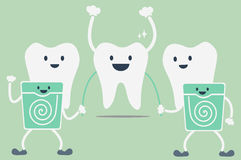Many people do not associate diabetes with dental care, but if you suffer from diabetes you need to take special care of your teeth and gums.
According to Web MD, “Diabetes is a disease that can affect the whole body, including your mouth. Dental care is particularly important for people with diabetes because they face a higher than normal risk of oral health problems due to poorly controlled blood sugars. The less well controlled the blood sugar, the more likely oral health problems will arise. This is because uncontrolled diabetes impairs white blood cells, which are the body’s main defense against bacterial infections that can occur in the mouth.”
People with diabetes face a higher risk of:
- Dry mouth. Uncontrolled diabetes can decrease saliva flow, resulting in dry mouth. Dry mouth can further lead to soreness, ulcers, infections, and tooth decay.
- Gum inflammation (gingivitis and periodontitis). Besides impairing white blood cells, another complication of diabetes is that it causes blood vessels to thicken, which slows the flow of nutrients to and waste products from body tissues, including the mouth. When this combination of events happens, the body’s ability to fight infections is reduced. Since periodontal disease is a bacterial infection, diabetics with uncontrolled disease may experience more frequent and more severe gum disease.
- Poor healing of oral tissues. People with uncontrolled diabetes do not heal quickly after oral surgery or other dental procedures because blood flow to the treatment site can be impaired.
- Thrush. People with diabetes who frequently take antibiotics to fight various infections are especially prone to developing a fungal infection of the mouth and tongue. The fungus thrives on the high levels of sugar in the saliva of people with uncontrolled diabetes.
- Burning mouth and/or tongue. This condition is caused by the presence of thrush.
Here are some oral health tips from Web MD:
Day-to-Day Dental Health Care Tips
- Have your teeth and gums cleaned and checked by your dentist twice a year. (Your dentist may recommend a closer interval depending upon your condition.)
- Prevent plaque buildup on teeth by using dental floss at least once a day.
- Brush your teeth after every meal. Use a soft-bristled toothbrush.
- If you wear dentures, remove them and clean them daily.
- If you smoke, talk to your doctor about ways to quit.
- dental-health-dental-care-diabetes
Antibacterial mouth rinses can reduce bacteria that cause plaque and gum disease, according to the American Dental Association.
It is essential that you follow good dental health practices, especially if you suffer from diabetes. Dr. Brogdon needs to be aware of your condition as well. Notify our office immediately in the event of any changes in your mouth, gums or teeth. We are concerned about your dental care and know you are too!


